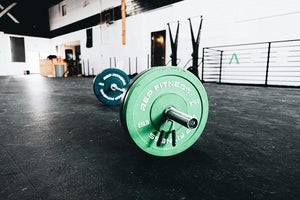The Game Changer: The Role of Dietary Supplements in Sports Nutrition
Jan 30, 2024
Sports nutrition plays a vital role in athletic performance and overall health. It involves consuming the right balance of nutrients to optimize physical activity, enhance recovery, and achieve peak performance. While a balanced diet is essential, sometimes it may fall short in providing athletes with the necessary nutrients they need to reach their goals. This is where dietary supplements step in.
What Are Dietary Supplements?
Dietary supplements are products containing one or more essential nutrients like vitamins, minerals, amino acids, herbs, or other botanicals that supplement an athlete's normal diet. They come in various forms such as capsules, tablets, powders, liquids, and gummies. These supplements are designed to bridge the nutritional gaps and support athletes in achieving their fitness objectives.
The Benefits of Dietary Supplements for Athletes
1. Enhanced Performance
One of the primary reasons athletes incorporate dietary supplements into their routine is to enhance their performance. Certain supplements, like creatine, have been shown to improve power, strength, and exercise capacity. Branched-chain amino acids (BCAAs) help reduce muscle fatigue, while caffeine can increase focus and energy levels during workouts.
2. Improved Recovery
Intense physical activity can lead to muscle damage and oxidative stress. Dietary supplements can aid in the repair and recovery process, allowing athletes to bounce back faster. Protein supplements, such as whey protein, are commonly used to promote muscle protein synthesis and repair damaged tissues. Additionally, antioxidants like vitamins C and E help combat oxidative stress and reduce inflammation.
3. Nutritional Support
Athletes often have higher nutrient requirements compared to sedentary individuals due to their increased energy expenditure. Dietary supplements can provide the necessary vitamins and minerals that may be lacking in their diet. For instance, athletes engaged in endurance activities may benefit from iron or vitamin B12 supplementation to prevent deficiencies and support optimal oxygen transport.
4. Convenience
While it's always preferable to obtain nutrients from whole foods, it's not always practical or convenient for athletes, especially during training or competition. Dietary supplements offer a convenient and portable solution, ensuring athletes can meet their nutritional needs on the go.
Types of Dietary Supplements for Sports Nutrition
Now that we understand the importance of dietary supplements in sports nutrition, let's delve into some common types:
1. Protein Supplements
Protein supplements, such as whey, casein, and soy protein, are widely used in sports nutrition. These supplements are easily digested and absorbed, making them an excellent choice for post-workout recovery. Protein is essential for muscle repair and growth, and supplementing with protein powder can help athletes meet their protein needs more efficiently.
2. Creatine
Creatine is a naturally occurring compound found in small amounts in some foods. It plays a crucial role in energy production and is particularly beneficial for high-intensity, short-duration activities like weightlifting or sprinting. Creatine supplementation has been extensively studied and shown to enhance muscular strength, power, and performance.
3. BCAA Supplements
Branched-chain amino acids (BCAAs) refer to three essential amino acids: leucine, isoleucine, and valine. These amino acids are popular among athletes because they can help reduce exercise-induced muscle damage, decrease fatigue, and promote muscle protein synthesis. BCAA supplements are commonly used pre, intra, and post-workout to support muscle recovery and growth.
4. Vitamins and Minerals
Essential vitamins and minerals are vital for overall health and wellbeing in athletes. Adequate intake of vitamins and minerals ensures optimal energy production, immunity, and recovery. Supplements like vitamin C, vitamin D, iron, and magnesium can help fill nutrient gaps and support athletic performance.
5. Energy Supplements
Energy supplements, often containing caffeine and other stimulating ingredients, can provide athletes with a burst of energy and improve focus during workouts or competitions. These supplements can enhance alertness, decrease perceived exertion, and delay the onset of fatigue.
Important Considerations for Athletes
While dietary supplements can be beneficial for athletes, it is essential to approach their usage with caution and consideration. Here are some key points to keep in mind:
1. Quality and Safety
Not all dietary supplements are created equal. To ensure quality and safety, athletes should choose products that have been tested by independent third-party organizations and have the necessary certifications. Additionally, it's crucial to consult with a healthcare professional or a registered dietitian before starting any new supplement regimen.
2. Individualized Approach
Each athlete has unique nutritional needs and goals. While certain supplements may work well for one individual, they may not yield the same results for another. It's crucial for athletes to work with professionals who can help tailor supplement choices and dosages to their specific needs.
3. Balanced Diet First
Dietary supplements should never replace a balanced diet. Whole foods should always be the primary source of nutrients, and supplements should only be used to complement and enhance existing dietary practices. Athletes should focus on consuming a variety of nutrient-dense foods to meet their nutritional goals.
4. Doping Concerns
Athletes participating in competitive sports must be aware of the potential doping risks associated with certain dietary supplements. It's crucial to choose products that are tested for banned substances by reputable organizations like NSF Certified for Sport or Informed Sport.
In Conclusion: Unleash Your Athletic Potential
Dietary supplements play a crucial role in sports nutrition by bridging nutritional gaps and supporting athletes in achieving their fitness goals. From enhancing performance and improving recovery to providing essential vitamins and minerals, these supplements can be a game-changer for athletes. However, it's essential to approach their usage with caution, consulting professionals, and prioritizing a balanced diet. Unlock your athletic potential with the right dietary supplements and take your performance to new heights.


